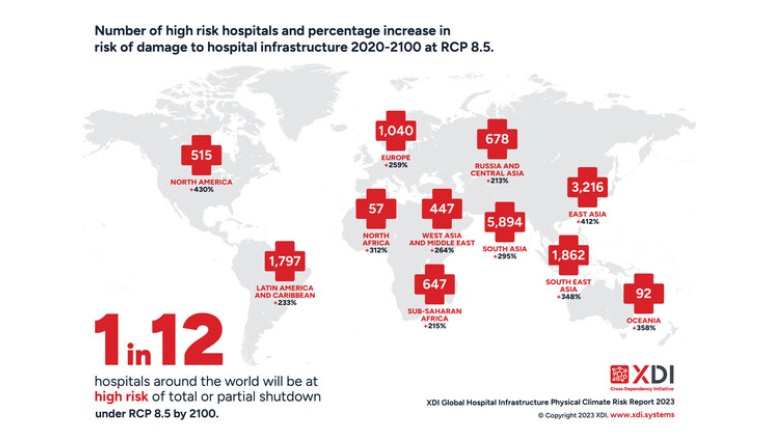The world’s ambitious goals of achieving net-zero carbon emissions by 2050 are increasingly jeopardized by fragmented carbon markets and the persistent challenge of carbon leakage.
A recent deep dive by Oxford Economics for the Hinrich-IMD Sustainable Trade Index, authored by Thang Nguyen-Quoc and Theng Theng Tan, highlights the urgent need for coordinated policy and a global carbon pricing system.
Key findings:
According to the report, compliance markets, including emissions trading systems (ETSs) and carbon taxes, currently cover a mere 24% of global greenhouse gas (GHG) emissions.
Concurrently, the voluntary carbon credits market has seen a slowdown in trading activity over the past two years, battling both a resurgence of fossil fuels and integrity scandals that have eroded public confidence.
This underdeveloped and fragmented structure of carbon markets fosters carbon leakage—a phenomenon where stringent carbon pricing in one region drives emissions to countries with weaker regulations, often through production relocation.
The World Trade Organization (WTO) has found that for every 100 metric tons of carbon emissions reduced domestically, five to 30 metric tons are increased abroad, creating a disincentive for governments to escalate their carbon pricing regimes. Currently, only 1% of global emissions are priced at the level recommended by the High-Level Commission on Carbon Prices and Competitiveness.
In response to competitiveness concerns arising from carbon leakage, border carbon adjustments (BCAs) have gained traction. The European Union’s Carbon Border Adjustment Mechanism (CBAM), which came into force on October 1, 2023, is the first global implementation of such a policy, charging a fee on imported goods based on their embedded carbon emissions. Countries like Australia, Canada, Japan, the UK (with its own CBAM slated for 2027), the US, and Taiwan are also considering similar measures. This has prompted developing nations like India, Indonesia, Türkiye, Morocco, Ukraine, and Uruguay to explore or implement explicit carbon pricing to mitigate compliance costs and retain revenue domestically.
However, the report cautions against relying solely on BCAs as a pathway to a global carbon market. Critics argue that BCAs primarily focus on explicit carbon prices, overlooking the crucial role of implicit carbon prices and incentives for
energy efficiency.
Developing countries have voiced concerns that the EU’s CBAM, for instance, is punitive and conflicts with the “common but differentiated responsibilities” principle of the Paris Agreement.
Moreover, adopting BCA-driven climate policies in developed countries could lead to increased living costs and potential political resistance.
Regional cooperation: A pragmatic way forward:
Oxford Economics suggests that for developing countries, coordinating the development of regional carbon markets could serve as a pragmatic and realistic interim step.
While not immediately eliminating carbon leakage risks, this approach allows economies to adapt to their specific economic, political, and institutional contexts.
The report highlights that as the EU faces pressure for CBAM exemptions, there is room for negotiation, potentially leading to temporary reductions in developed countries’ border adjustments in exchange for credible climate commitments from regional blocs. The success of the Montreal Protocol offers a historical precedent for achieving global coordination through a stepwise, regional approach.
To avoid a spaghetti bowl of inconsistent rules, developing countries must strategically design their regional markets. The ASEAN Community, with its formalized Common Carbon Framework, is cited as a promising model for a regional carbon market that could inspire other regions globally.
Beyond regional efforts, the report also emphasizes strengthening public-private cooperation, particularly leveraging the breakthrough on Article 6 at the United Nations Climate Change Conference (COP 29) in Baku, Azerbaijan. This agreement established rules for countries to create, trade, and register emission reductions and removals as carbon credits, bolstering the foundational framework for international carbon credit markets by prioritizing environmental integrity.
Despite past integrity concerns and their relatively small market size, carbon credits remain a vital component of climate mitigation strategies. The report suggests that BCA-implementing governments could integrate voluntary carbon credits into their compliance systems.
Initiatives like the Carbon Offsetting and Reduction Scheme for International Aviation (CORSIA) program, which mandates the use of conditionally adjusted credits, demonstrate how industry-led efforts can address integrity deficits and ensure the credibility of carbon credit utilization.
The path toward a global carbon pricing system remains complex, but the report underscores that strategic regional cooperation and strengthened international frameworks are essential steps in accelerating global climate action and achieving net-zero targets.













